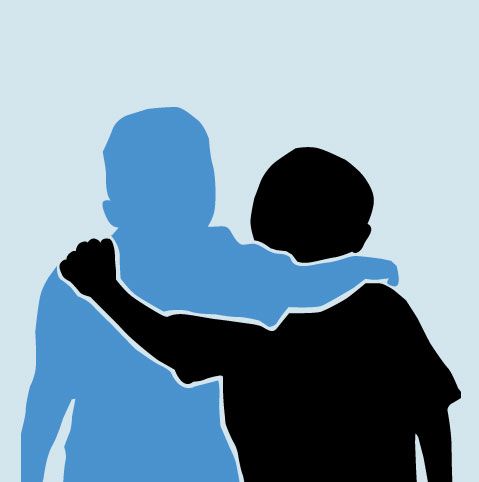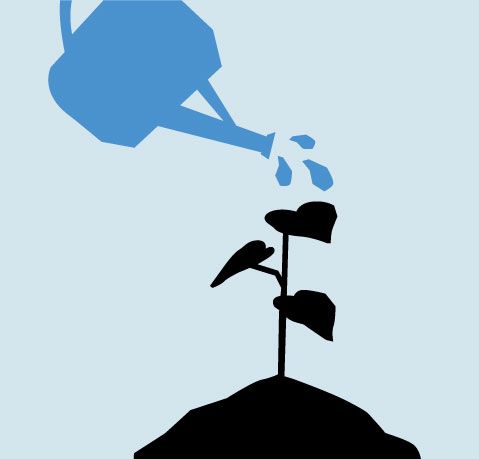Our Vision
Make hope real for people trapped in poverty.
Our Mission
Deliver appropriate solutions with high benefit to cost ratio, using street smart processes to detect fraud and stretching the donor’s dollar to do more with less.
Why Hope
WHAT MAKES
US UNIQUE
We take stewardship of donors’ money
seriously, working to ensure that
donated funds are translated into
projects that bring a significant impact
to our beneficiaries. Our two decades of
experience in developing countries has
taught us that fraud and corruption are
serious obstacles to the cost-effective
delivery of programmes. For this reason,
we have painstakingly developed streetsmart processes that do not just rely on
receipts. Our programmes are evaluated
from the viewpoint of the beneficiaries
and we constantly seek their feedback.
Maximum Benefits To
Beneficiaries
Although it is a vital indicator of success for NGOs, benefit-to-cost ratio is not a widely used parameter. At OHF, it is a key performance indicator. However, the way benefit and cost are calculated has to be clearly defined. For OHF, benefit is the financial cost of the services given to the beneficiary.
Relevance of the benefits
We evaluate benefit not only on the basis
of cost but also on its usefulness to the
beneficiary. For example, in the Indonesian
tsunami, 20 large fishing boats were donated
to the affected fishing community, but they
were too big and expensive to operate. The
20 boats were left rusting on the beach.
Therefore despite the huge financial
donation involved, there was no benefit
to the receiver
Real cost of the benefits
In a disaster relief project in a village known
to us, 500 villagers were each given 20kg
sacks of rice by an NGO who had purchased
them from a local supplier. However as no
one weighed the rice sacks beforehand, the
NGO did not know that the actual weight of
each sack was 15kg, but they were charged
for 20kg. Furthermore, the rice quality was
inferior to that requested and paid for
by the NGO. So the benefit has to be set
against the actual cost per kilogram,
which was much higher than expected
MAXIMISING Benefit To Cost Ratio
Low Benefit-to-Cost Ratio
Often donors mistake the total amount of their
donation as the benefit. However, it is important
to ask how the NGO uses the money and how
many intermediaries are involved before it reaches
the beneficiaries. Our research indicates that the
benefit-to-cost ratio can be as low as 10%.
High Benefit Cost Ratio
At OHF we make sure that our benefit-to-cost ratio
is never less than 80%, to ensure maximum benefit
to the beneficiaries. This requires considerable focus
on cost by our senior management, to keep it as low
as possible. This high benefit-to-cost ratio is our
commitment to our donors
Detect And Reduce Frauds
Corruption, embezzlement, fraud,
these are all characteristics which
exist everywhere. It is regrettably
the way human nature functions,
whether we like it or not. What
successful economies do is keep
it to a minimum. No one has ever
eliminated any of that stuff.”
Alan Greenspan
Former Chairman of the Federal Reserve Board
Receipt-based audit does not work
In our projects we do not rely only on
receipts for our audits, as receipts are easily
faked. For example, in the use of vehicles,
a driver can easily submit fabricated
receipts for diesel. We therefore have put
measures in place to check the mileage
of each vehicle and, based on the vehicle
consumption, we estimate the diesel cost.
This estimated cost is then compared
against the actual claims submitted.
Creative ways to verify work done
After typhoon Haiyan in the Philippines,
a project was launched and funded to
build 700 houses for the victims. But the
donor had no way of verifying that the 700
houses were actually built, since he could
not visit all of the houses. We have a simple,
fool-proof solution to this problem, which
involves requesting the local NGO partner
to submit photos of all the houses they
have built, using a GPS enabled camera.
Each picture of the house will have the GPS
coordinates embedded in the photo, and
with these GPS coordinates we can check
each individual house, using Google Earth.
Why is fraud unrecognised?
The Virus of Poverty is fraud
Most accounts checking systems are
based on the collection of receipts, and
the assumption that receipts are genuine.
However, faked receipts are widespread in
many developing countries. When no effort
is made to check whether the receipt is
genuine, fraud is encouraged. In developing
countries, accounting and audit systems
based on receipts do not work if the latter
can easily be falsified. Street-smart processes
must be used in conjunction with receipts
to ensure proper accounting and detect
fraudulent practices
Providing High-Impact Projects
Statistics can give completely the wrong
impression. An NGO can claim that its
donation of $1 million has benefited
100,000 people. But this amounts to just
$10 per person. How effective and life
transforming can $10 be?
Giving hope to poor families
In our OHF Community programme, we
carefully select very poor families in need of
housing, and provide them with a basic 4m
x 5m wooden house at a cost of S$4,000.
These houses have many benefits. First of
all the family gains self-esteem and dignity.
They integrate better into their immediate
community, as neighbours can now come
to visit them. Children feel more secure,
as they have a substantial house to live in
and are no longer vulnerable to mocking
from their classmates for living in a shack.
Moreover health improves, as the family is
no longer drenched by an old leaking roof
when it rains.
Giving hope to rural youth
In our OHF Skills programme, we offer a
seven-month residential training course
for rural youth in deprived communities to
provide them with the skills and confidence
to get a white-collar job. At the end of our
course students can speak conversational
English, are computer-literate and acquire
other key marketplace skills. Even more
importantly, they develop greater selfassurance and a hunger to learn more,
which along with the new skills they have
acquired, benefits them at job interviews.
Our Values
Hopes Comes Alive
Inclusivity is about creating programmes that benefit everyone regardless of creed or colour, have long-lasting benefits, and are comprehensive in their nature.
Dignity is about enabling disadvantaged individuals, families and communities to do more for themselves, empowering them and restoring their self-respect.
Empathy is about putting ourselves in the shoes of our beneficiaries, to understand their problems and meet their needs in the right way.
Accountability is about taking ownership and being transparent in our operations, enabling our donors, partners and beneficiaries to understand what we do and how the money is spent.

INCLUSIVITY
We welcome and serve all, regardless
of colour, creed or faith.
We want to build communities that help
one another. Poverty and need are our
primary selection criteria regardless of
religion and caste. We believe in the power
of partnerships with other organisations to
do more goo

DIGNITY
We want to empower the poor and
disadvantaged, so that they can do
more for themselves.
The aid rendered must be tangible and
effective, such as providing training in
computer skills and English in order to
help rural youth to get jobs. When Nepali
villagers affected by the earthquake are
taught how to build low-cost rice bag
houses themselves, instead of depending
on government aid, they gain confidence
and self-respect.

EMPATHY
Empathy is the most important value for
us, as it ensures we do the right thing at
the proper cost for our beneficiaries.
Empathy is about putting ourselves in
their shoes in order to understand their
needs and see how we can best help them.
It’s also about having the discipline and
humility to acquire new skills if those skills
are what the poor needs. Empathy is to
ensure maximum benefit goes to the poor,
that cost is properly contained and that we
ensure our donor’s funds are properly used.

ACCOUNTABILITY
We believe in taking ownership of projects,
even when working with partners.
Accountability means we are intimately
involved in the execution of our
programmes. Special attention is given
to prevention of fraud and corruption.
All projects are executed with full
transparency and good governance.
Accountability is also to ensure that projects
provide real impact to our beneficiaries.